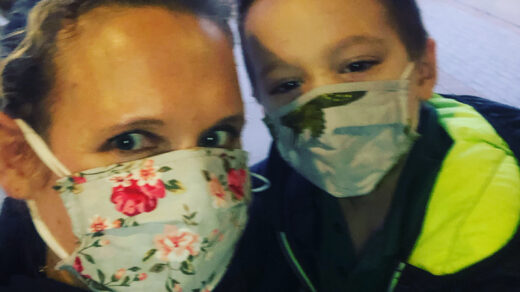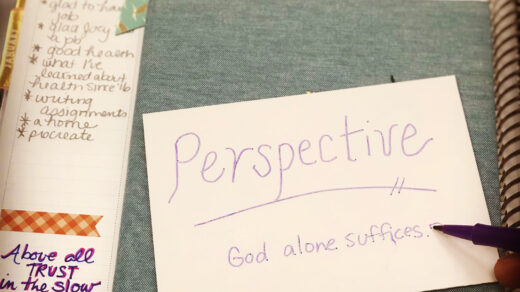I remember the distinct feeling of walking up the stairs to the third floor and over to my Physics professor’s office. I was coming to meet with him regarding my first couple tests in his class. As I took my place in line with my two blue books in hand (do they still use blue books?), I purposefully avoided looking at my papers too closely. I had been nervous from day one in this particular class. Physics was sophomore year in high school for me, after all, and I really did not remember anything except the classic egg drop experiment [which, side note: the teacher actually loved the design my friend Rose and I turned in so much that he left it up on a table at the front of the room for months… the egg still inside… It was fascinating to watch it disintegrate over time as Rose and I secretly wondered when he’d remember its existence]. So, I entered the physics classroom on the first day completely uncertain as to what to expect. I was a little fooled by the textbook to think it was going to be doable – it was a series of workbooks that seemed to be broken apart in reasonable chunks. But the professor quickly lost me, as he went through example after example quickly.

It did not help that the heat was about 100° in the classroom to counteract the 20° weather outside. I sat in the back, and tried to absorb the lessons through osmosis figuring I could just catch up on my own. Needless to say, I showed up for the first test ill-prepared. I had not worked the problems because I did not know how to do them. I had not planned sufficient time to study, and I was not prepared for what a college level test would actually look like. At that time, we did all our physic tests in blue books – basically a bound packet of lined paper. The test itself was one sheet of paper with 5 questions on it. 5 questions but each question had about 4-5 parts. I tried very hard on that first test to muddle my way through all five questions hoping that I would at least get a couple parts of each correct and partial credit for the old “college try” on the rest. We got the test back a few weeks later and in red at the top was a 20%. I had heard rumors that all tests in engineering courses like this one were eventually curved because they were so impossible. Internally, however, I had knots in my stomach thinking you could only curve 20% up so much. The professor then revealed the curve on the board, and I was right… curve a 20% all you want… it is still an F.
Never a quitter, I had a great plan for test #2. The plan came to me shortly after receiving my first blue book back. I went onto my next class, and I heard two guys talking behind me about their grades. One was saying, “Man, seriously, how in the world did you get a 99%.” Never the shy one, I turned around, held out my hand and said “My name is Gretchen, and you are my new best friend.” Internally, I could not believe I did that. Externally, I told these two guys about my failing grade and asked for help before test #2. So, this intelligent new friend of mine sat a few of us down to study before the second test of the year. He explained all the questions we had not been able to do in our homework, and helped us complete the problems we were still lacking answers for. I felt that this was, of course, the ideal plan. I was destined to do better on the second try. I reviewed mentally over the problems we had done, and I went into the next test still nervous but certain I had solved the problem. A week or so later, I got back the test with a red 19% on the top.
And that’s when I, and many others in class, walked up the stairs to the third floor physics offices and decided to finally take advantage of the professor’s office hours. Waiting in line, I was super-nervous. It was not that I had never failed anything before, it was instead that I had always been able to turn it around. I always found a way to succeed in the end. There was, however, only one test and a final left. I didn’t even know if succeeding was possible. Still, I had to try.
The guy in front of me was someone I knew, and we had compared tests. He was not doing any better than I was. So, as he entered the offices, I shamelessly listened into his conversation with the professor. I was actually edified by what I heard. The professor told him that despite his rough start, he figured he would be able to do okay in the end if he tried a little harder and took advantage of the professor’s office hours. They went over a couple strategies (like actually studying) and then it was my turn. I walked in sure I would hear the same encouragement. Instead, he had a colored piece of paper ready to hand to me. It was a drop slip. He explained that it was clear I was struggling with the material, and there was still time to drop the class and not have it go on my record. Physics just may not be for me, he said. Engineering may just not be for me. I remember clearly staring at the piece of paper on his desk sitting between us. He seemed so sure. I breathed deeply and then said: “I appreciate your opinion, but I am not quitting. What do I need to make in order to pass the class?” He told me I would have to make a B+ at least on the next test and final to even have a hope to pass. “What help is available?” I asked next. We went through the times of his office hours. The hesitation was evident in him throughout but I was persistent “I do not fail. I have not done all I can do. I will be at your office hours every week. I will be at your group sessions. I am not dropping this class.” Skeptical, he said he would see me at office hours in a couple days.
The next few weeks, I never worked harder on anything in my life. I had the teacher help me do most of the problems the first time, but then I did each one of them again three more times. Over and over again until I could do them without looking at the answer key. I read every word in the chapters and highlighted and underlined and made sheets of formulas. I went into test #3 nervous, but determined.
At the beginning of second semester, I went to meet with the professor one last time. I had a new professor now, but I wanted to thank him for working with me. “Gretchen, I have to apologize to you,” he said. He went on to explain that he had always thought I would fail the class. In the end, he never expected me to make an A- on the third test and a similar grade on the final. “You not only passed. You passed with a B.” He had even spoken with my Physics II professor to let him know not to underestimate me.
Eleanor Roosevelt once said: “You gain strength, courage, and confidence by every experience in which you really stop to look fear in the face. You must do the thing which you think you cannot do.” I did not think I could pass Physics, and I did. But that, for me, is not the lesson of the story. I later encountered much more difficult courses where I finally had to admit that engineering was not what God designed me for. For me, it was even harder to admit, and took years to do so in fact, that my skills and talents lay elsewhere. Discerning who you are truly meant to be, what you as an individual are truly meant to work hard for, and then going after that is often the thing most impossible to do. I learned I could work hard and achieve with determination through that Physics class and many other similar experiences, but it was not until I directed that determination and energy in the direction of becoming the person God created to me that it truly began to produce magic.
May you be able to discern exactly who God is calling you to be and pursue it with all your heart… even if no one but you knows you can.


